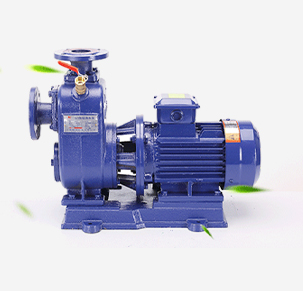Pashto
- Afrikaans
- Albanian
- Amharic
- Arabic
- Armenian
- Azerbaijani
- Basque
- Belarusian
- Bengali
- Bosnian
- Bulgarian
- Catalan
- Cebuano
- Corsican
- Croatian
- Czech
- Danish
- Dutch
- English
- Esperanto
- Estonian
- Finnish
- French
- Frisian
- Galician
- Georgian
- German
- Greek
- Gujarati
- Haitian Creole
- hausa
- hawaiian
- Hebrew
- Hindi
- Miao
- Hungarian
- Icelandic
- igbo
- Indonesian
- irish
- Italian
- Japanese
- Javanese
- Kannada
- kazakh
- Khmer
- Rwandese
- Korean
- Kurdish
- Kyrgyz
- Lao
- Latin
- Latvian
- Lithuanian
- Luxembourgish
- Macedonian
- Malgashi
- Malay
- Malayalam
- Maltese
- Maori
- Marathi
- Mongolian
- Myanmar
- Nepali
- Norwegian
- Norwegian
- Occitan
- Pashto
- Persian
- Polish
- Portuguese
- Punjabi
- Romanian
- Russian
- Samoan
- Scottish Gaelic
- Serbian
- Sesotho
- Shona
- Sindhi
- Sinhala
- Slovak
- Slovenian
- Somali
- Spanish
- Sundanese
- Swahili
- Swedish
- Tagalog
- Tajik
- Tamil
- Tatar
- Telugu
- Thai
- Turkish
- Turkmen
- Ukrainian
- Urdu
- Uighur
- Uzbek
- Vietnamese
- Welsh
- Bantu
- Yiddish
- Yoruba
- Zulu
Telephone: +86 13120555503
Email: frank@cypump.com
Dec . 22, 2024 18:53 Back to list
Efficient Hydraulic Pumps for Slurry Transport and Handling Solutions
Understanding Hydraulic Slurry Pumps Functionality and Applications
Hydraulic slurry pumps are specialized devices designed to transport abrasive and viscous mixtures, commonly referred to as slurries. These mixtures typically consist of solids suspended in a liquid, such as water, and are found in various industries including mining, construction, and wastewater management. The significance of hydraulic slurry pumps lies not only in their ability to handle tough materials, but also in their efficiency and reliability in systems where traditional pumps face challenges.
Functionality of Hydraulic Slurry Pumps
At the heart of a hydraulic slurry pump’s operation is its ability to create the necessary hydraulic pressure to move slurries through piping systems. The pump often employs a centrifugal mechanism, utilizing an impeller to increase the velocity of the slurry while converting kinetic energy into pressure energy. This design is essential for overcoming the resistance posed by the solid particles within the mixture, ensuring effective transportation over considerable distances.
One of the key features of hydraulic slurry pumps is their robust construction, which allows them to withstand the harsh conditions associated with handling slurries. These pumps are typically made from high-strength materials such as cast iron, steel, or special alloys that resist wear and corrosion. This durability ensures a longer service life and reduces maintenance requirements, making them a cost-effective solution for industries that often contend with heavy-duty workloads.
Applications in Various Industries
Hydraulic slurry pumps have a broad range of applications across different sectors. In the mining industry, for example, they are frequently used to transport mineral slurries from crushing and grinding operations to processing and recovery systems. Due to the nature of the materials involved, these pumps are indispensable in managing the high solid content and corrosive characteristics typical of mineral slurries.
hydraulic slurry pump

In construction, hydraulic slurry pumps are employed to handle cement and concrete mixtures, especially in tunneling and deep excavation projects
. Via their capacity to manage the high viscosity of these materials, they contribute to the smoothing of construction processes, enabling efficient site management and project timelines.Wastewater treatment facilities also heavily rely on hydraulic slurry pumps for managing sludge and other heavy materials that must be redirected for further processing or disposal. The ability of these pumps to handle solids while preventing blockages is critical for maintaining operational efficiency in wastewater management systems.
Selection and Maintenance Considerations
Choosing the right hydraulic slurry pump involves several considerations. Key factors include the type of slurry to be pumped, the required flow rate and pressure, and the distance and elevation the slurry must be transported. Manufacturers often provide customized solutions to meet the specific needs of different applications, ensuring that the selected pump can handle the operational demands effectively.
Maintenance is another crucial aspect of ensuring optimal performance and longevity of hydraulic slurry pumps. Regular inspections should be conducted to check for wear on the pump components, seal integrity, and any blockages in the piping systems. Implementing a proactive maintenance schedule can significantly reduce the risk of unexpected downtime and costly repairs.
Conclusion
Hydraulic slurry pumps play an essential role in various industries, providing the necessary means to transport and manage challenging mixtures efficiently. Their robust construction, advanced design features, and ability to operate under demanding conditions make them invaluable tools in mining, construction, and waste management. By understanding their function, applications, and maintenance needs, operators can maximize the performance of these pumps, thereby enhancing the overall productivity and efficiency of their operations. As industries continue to evolve, so too will the innovations surrounding hydraulic slurry pump technology, ensuring they remain integral to future developments.
-
pipeline pump - Chi Yuan Pumps Co., LTD.|High Efficiency&Low Noise
NewsJul.31,2025
-
ISG Series Vertical Pipeline Pump - Chi Yuan Pumps Co., LTD.|High Efficiency, Energy Saving, Low Noise
NewsJul.30,2025
-
ISG Series Vertical Pipeline Pump- Chi Yuan Pumps|High Efficiency&Low Noise
NewsJul.30,2025
-
ISG Series Vertical Pipeline Pump-Chi Yuan Pumps Co., LTD.|High Efficiency&Energy Conservation
NewsJul.30,2025
-
ISG Series Vertical Pipeline Pump - Chi Yuan Pumps Co., LTD.|Advanced Hydraulic Design&Energy-Efficient Solutions
NewsJul.30,2025
-
ISG Series Vertical Pipeline Pump - Chi Yuan Pumps Co., LTD.
NewsJul.30,2025










